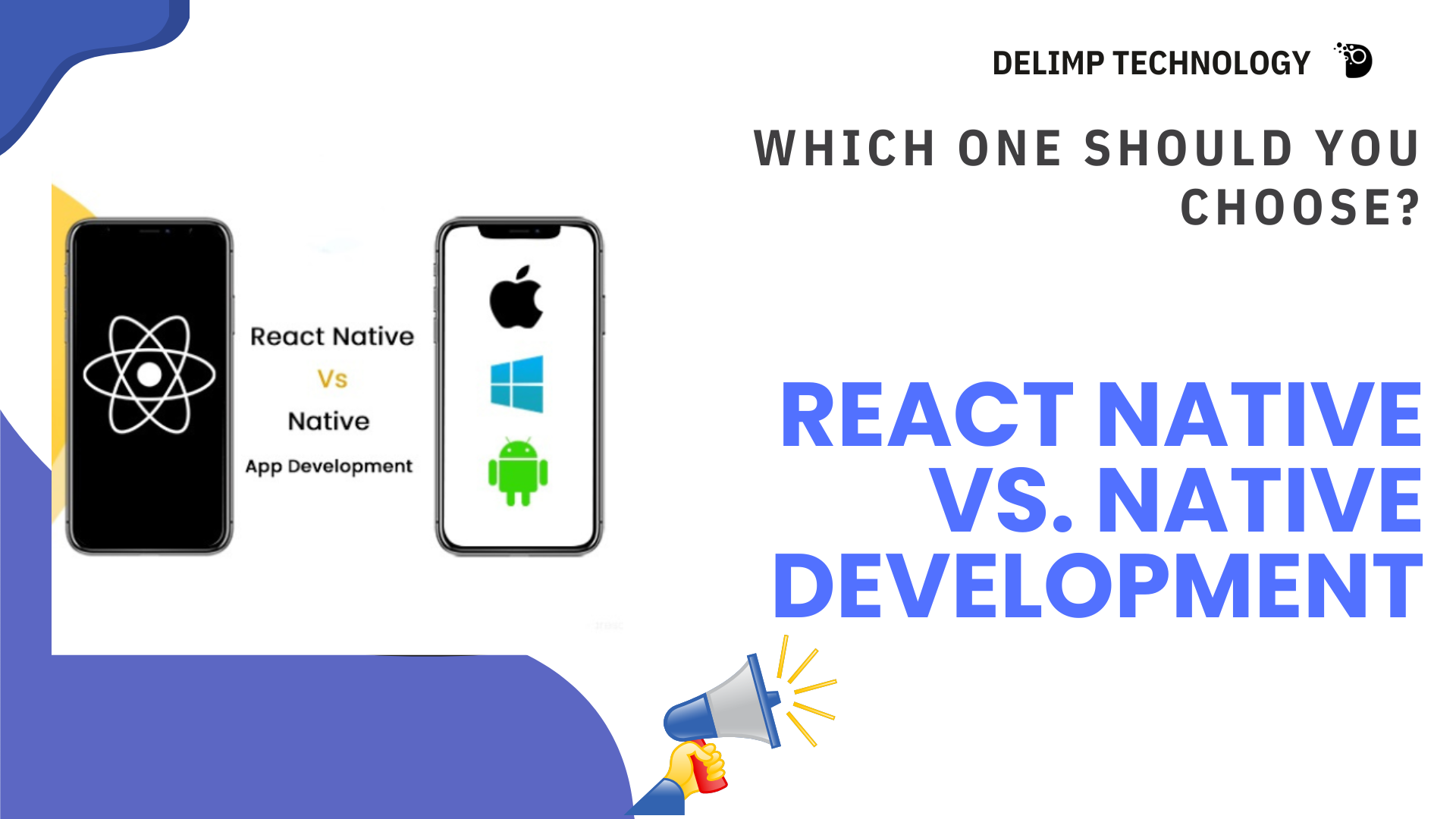In this fast-paced digital world, companies are eager to build mobile apps that work seamlessly and provide a high-quality user experience. But here’s the deal: deciding on either React Native or Native Development can be a dilemma. This can make things challenging for developers and business owners, as each of the approaches has its pros and cons.
This blog is designed to assist you in making an informed decision by contrasting these two options so that you can select the right tool for performance, scalability, cost, and user experience.
What is Native Development?
Native Development means building mobile applications customized for a particular platform, such as iOS or Android, by utilizing its specific programming language which in the case of iOS it is Swift and for Android it will be Kotlin. This approach usually provides great performance and integration with the device capabilities.
React Native, on the other hand, is a popular framework developed by Facebook that enables developers to build cross-platform apps using the same codebase in JavaScript. Although React Native is fast for development cycle, it cannot always achieve the performance of native apps.
Performance: Native Development Takes the Cake
Native Development takes the crown in terms of performance. Those are native apps that are optimized for each particular platform, and they tend to have faster load times, smoother animations, and better responsiveness.
Real-World Example: Gaming apps and applications with complicated functionalities, like Spotify and WhatsApp, are better off native because they require high performance and smooth UI/UX user experience.
React Native is Faster in Development Time
React Native enables developers to create one set of code for android and ios, which shrinks development time considerably. Perfect for startups and businesses aiming to start their apps immediately and with minimum resources.
However, with Native Development, you need to rewrite the code for iOS and Android separately, which could be expensive as well as time-consuming.
Fact: 60% of businesses prefer a cross-platform solution to speed up time-to-market, according to the Business of Apps 2023 report.
Acceptance: React Native is in Higher Demand
As the developer must be specific to the platform, it may cost more to build a Native Development app. Also, in the longer run, it makes the costs higher as you need to maintain two codebases for iOS and Android.
On the other hand, React Native is a more cost-effective solution as it enables one developer team to handle both platforms.
Pro Tip: If you are cost sensitive to a point that you are orbiting the earth, use React Native.
User Experience: Native Development Delivers a Better UX
Native Development is capable of delivering a better user experience, which is its biggest benefit. Because native apps have access to all device features, developers can create more intuitive and seamless interactions.
React Native apps provide a good enough UX but cause you to miss out on platform-specific subtleties that users would anticipate from native apps. Native applications are also smoother for animations, gestures and transitions.
Real-World Example: Apps like Instagram use a hybrid system— React Native for some parts of the app and Native Development for others — to balance user experience and development time.
Scalability: The Future-Proofing of Native Development
Native Development is ideal for applications that must scale up then adapt with time. It brings developers new opportunities to quickly take advantage of platform-specific features and enhancements without being locked out.
On the other hand, React Native can be less compatible with the new operating system updates, in such cases the development team needs to do more hacks to keep the app not break.
Conclusion
Alright, let’s wrap this up. When it comes to picking between React Native and Native Development, it really boils down to what you’re after. If you need to get your app out there fast and you’re watching your wallet, React Native’s probably your best bet. But if you’re all about making an app that runs like a dream and wows users, you’ll want to go the Native Development route.
Look, there’s no magic answer that works for everyone. You’ve got to think hard about what matters most to you – how quickly you need it done, how much cash you’ve got to spend, and what you’re hoping to achieve down the road. At the end of the day, if you want to make real money with mobile apps, you’ve got to find that sweet spot between speed, cost, and how well the thing actually works.
Frequently Asked Questions (FAQs)
Q1. What is the main difference between React Native and Native Development?
Ans. React Native is a cross-platform framework that allows developers to write a single codebase for both iOS and Android using JavaScript.
Native Development, on the other hand, involves building apps specifically for each platform using their respective programming languages — Swift for iOS and Kotlin or Java for Android.
Q2. Which is better for performance: React Native or Native Development?
Ans. Native Development is better for performance as it is tailored specifically for a particular platform. It provides smoother animations, faster load times, and better access to device features.
React Native is a good option for simple apps but may struggle with performance-heavy tasks like gaming and complex animations.
Q3. Is React Native more cost-effective than Native Development?
Ans. Yes, React Native is generally more cost-effective because you can use a single development team to build for both platforms.
Native Development requires separate teams for iOS and Android, increasing both development time and cost.
Q4. Can React Native apps match the user experience of native apps?
Ans. While React Native apps offer a decent user experience, they often fall short compared to Native Development apps in terms of platform-specific design and interactions. Native apps feel more polished and intuitive due to their deeper integration with platform features.
Q5. Which option is better for startups: React Native or Native Development?
Ans. For startups looking to launch quickly and with a limited budget, React Native is a better option due to its faster development time and lower costs. However, for long-term scalability and better user experience, Native Development is preferable.





